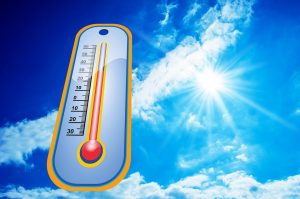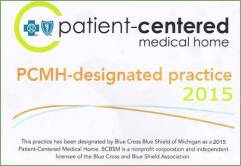You’re at the beach, enjoying the salty breeze, crisp air, and beaming sun. With all of the excitement, sunscreen becomes a thought long forgotten, whisked away by the glory of summer. Hours pass and you notice that your skin is highly irritated, blotchy, and red. Your arms, legs, and face are stinging. The misuse of sunscreen launches its way back into the forefront of your mind and you begin to regret that long stretch of time spent in the blazing sun.
Researchers and scientists often term severe sunburn as sun poisoning. This is usually a burn from ultraviolet (UV) radiation that inflames your skin. When the skin is exposed to too much UV radiation from the sun or artificial sources like sunlamps, sunburn can occur. Sunburn can be easily prevented however; with the use of sunscreen or simply by avoiding long periods of time in the sun and/or artificial sources. Of course for many it’s already too late for that. So, it is important that you get treatment for sun poisoning or severe sun burn and possibly skin testing for even more serious conditions including skin cancer.
Sunburn Facts:
- According to the Skin Cancer Foundation, 42% of people get a sunburn at least once a year.
- All it takes is approximately 15 minutes to become sunburned. But the signs of sunburned skin might not show immediately–it could take hours until the redness and discomfort introduces themselves.
- If you stay in the sun for long periods of time without sun protection, have light skin, and fair hair, you’re more likely to sunburn.
Treating Sun Poisoning or Severe Sunburn
To easily remedy severe sunburn:
- Say “NO” to further sun exposure.

- Cool your skin off!: Take a cool bath or shower or apply cool wraps or compresses.The American Academy of Dermatology (AAD) recommend keeping cool compresses on affected areas for 10-1
- 5 minutes a few times every day.
- Kick up the fluid intake for a week or so. Water is preferred!
- Pain relievers will do just that! Ibuprofen are recommended.
- Hydrocortisone cream (0.5-1%) reduces pain and swelling while speeding up the recovery process.
- Use moisturizer on sunburned skin. Aloe gel is really effective for healing, protecting, and rejuvenating skin.
- Try to avoid petroleum based products. Petroleum traps heat in the skin!
- If you must go outside, make sure your skin is covered and protected!
Symptoms of Sun Poisoning or Severe Sunburn
Seek medical attention if:
- Your sunburn forms painful blisters, peeling, or covers a vast area of your body
- Resist breaking your blisters: Open blisters slow the skin’s healing process and increase the risk of infection. If a blister accidentally breaks, be sure to clean the area gently with water and soap, applying antibacterial cream to protect the area with a wet dressing and/or gauze.
- Your face is swelling
- You’re experiencing a fever and chills
- Your stomach is upset or bothered
- You’re experiencing headaches, confusion, or faintness
- Signs of dehydration are evident
Skin Testing
If your sunburn leaves behind skin abnormalities like; blisters, rashes, hives and itching, it would probably be a good idea to have your skin tested. Skin testing is done to evaluate skin irregularities that are caused by overexposure to sunlight. There are several physical and equipment methods used in testing the skin. One of our physicians in Livonia or Westland will perform tests after first physically examining the affected areas.
Risks and Complications
- A positive reaction to skin testing may result in pain, blisters, itching, redness at the tested sites, skin pigment change, infection or scarring. However, it should be noted, that side effects are rare.
- If you have a positive skin reaction, your doctor will try to diagnose the cause of your disorder based on your history, symptoms, and results of other tests.
- If the test results are negative, the doctor may suggest more tests to determine the origin of the problem.
Getting the right medical treatment and skin testing is important if your skin has been highly exposed to the sun. At the Millennium Medical Health Clinics in Westland and Livonia Michigan, we care about your health and sun safety. If you have any questions regarding sun exposure, treating sunburns, or doing skin testings, please feel free to contact us.






